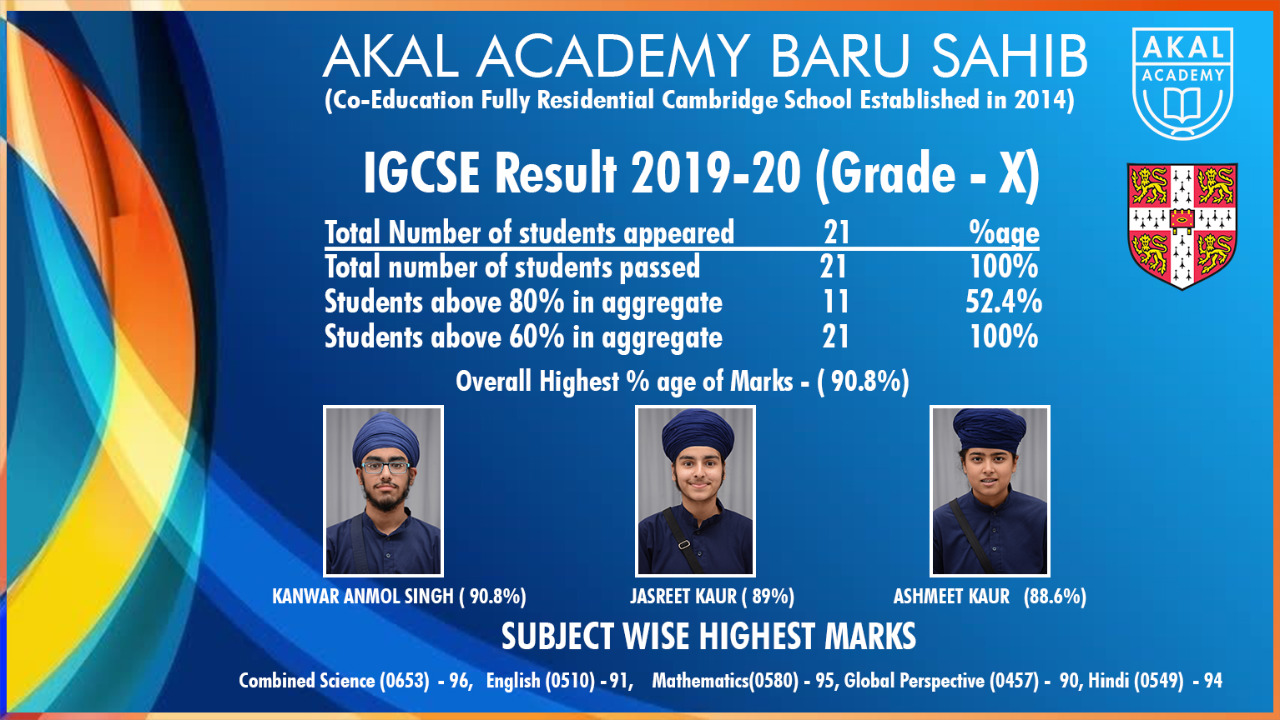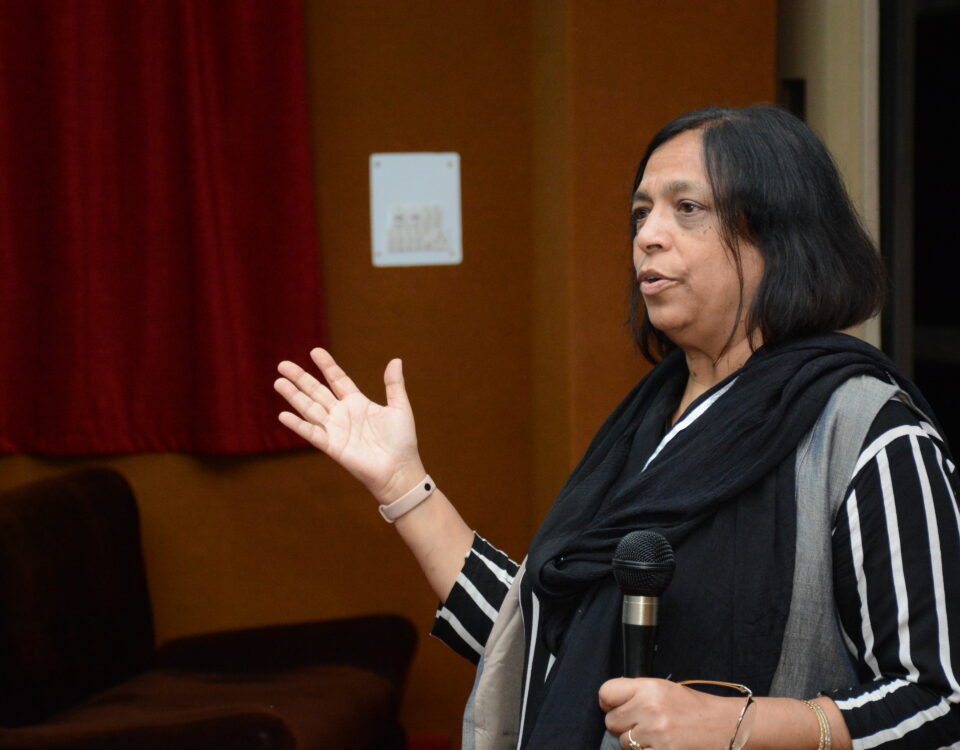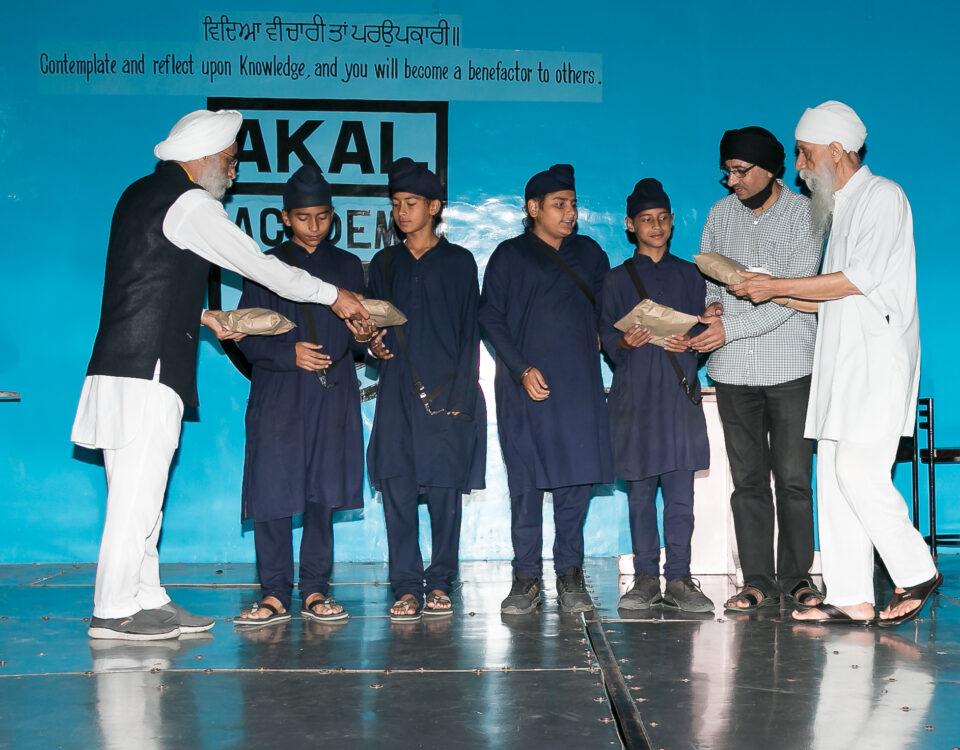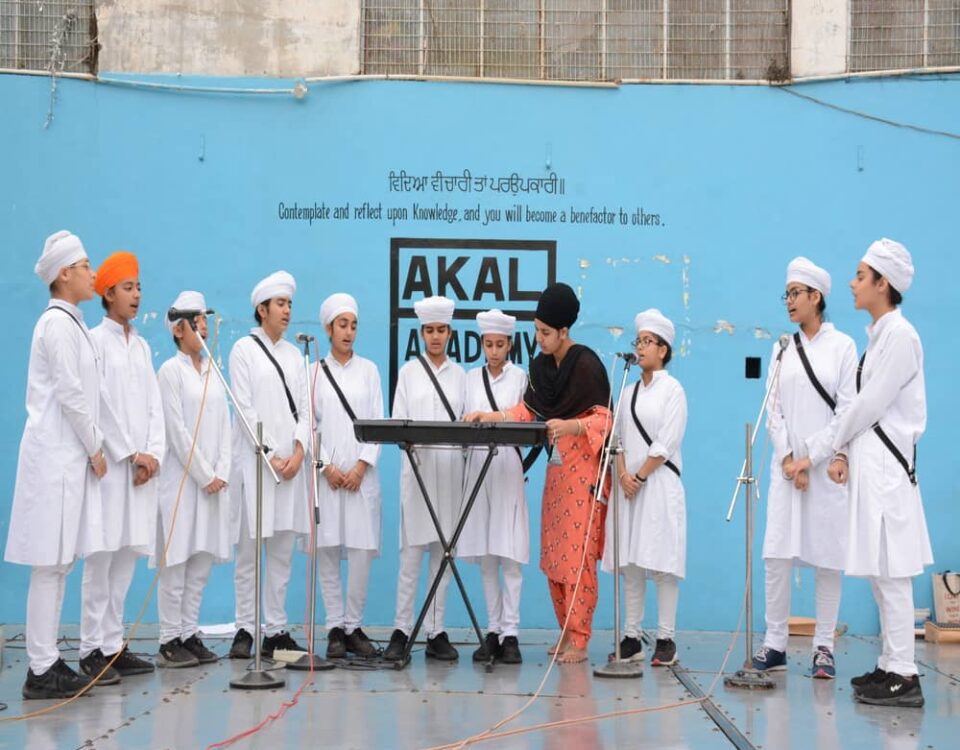Learning in CAIE
Cambridge Assessment International Education
Your child’s needs as a learner are at the heart of Our approach to education. Our Cambridge Programme aims to give your child a love of learning that will stay with them through school, university and beyond.
Cambridge Assessment International Education (CAIE) Let the education open your mind and heart
At Akal Academy Baru Sahib, our Cambridge Assessment International Education programme adopt ‘active learning’ as our classroom approach. This acknowledges that our learners are active in the learning process by building knowledge and understanding in response to learning opportunities provided by their teacher. This style of learning contrasts with a model of instruction whereby knowledge is imparted or transmitted from the teacher to students.
Active learning primarily includes: Student-centred learning - Students play an active role in their learning, with the teacher as an activator of learning, rather than an instructor Enquiry-based learning - Students learn by addressing and a posing scientific questions, analysing evidence, connecting gs such evidence to prior theoretical knowledge, drawing conclusions, and reflecting upon their findings Experiential learning - Learning takes place through direct experience. Learning should be relevant and situated within a meaningful context. We learn best when we can see the
Learning is developmental. Learning experiences for children, therefore, should be age-appropriate although development level and age are not always concurrent.
APPROACH BRIGHTER AND HAPPIER CHILD
Cambridge Assessment International Education(CAIE) prepares school students for life, helping them develop an informed curiosity and a lasting passion for knowledge. The Cambridge Pathway gives students a clear path for educational success from age 5 to 19 through, Cambridge Primary, Cambridge Lower Secondary, Cambridge Upper Secondary and Cambridge Advanced programmes. At Akal Academy Baru Sahib, we offer Cambridge Upper Secondary and Cambridge Advanced programme, shaping the curriculum around a wide range of subjects and using flexible ways to offer them. It helps our students discover new abilities and a wider world, and gives them the skills they need for life, so they can achieve excellence at school, university and professional world. Our ‘Learner-centered’ teachers set their teaching in real world contexts; finding out learners’ starting points of understanding before they plan how to enable them to learn. Because of this, a learner-centred teacher will focus on differentiation, and will use strategies associated with assessment for learning, including: ➤ effective questioning ➤ sharing of assessment criteria ➤ provision of feedback ➤ peer assessment and self-assessment ➤ using assessment information to adapt their teaching methodology The Cambridge approach supports us to develop learners who are confident of ideas and information that they have learnt or gathered. Such learners are also respectful of others ideas and perspectives. They have ability to innovate, engage socially and intellectually with new environment so as to make distinct contribution in any field of endeavors,
Brief of Online Language Class
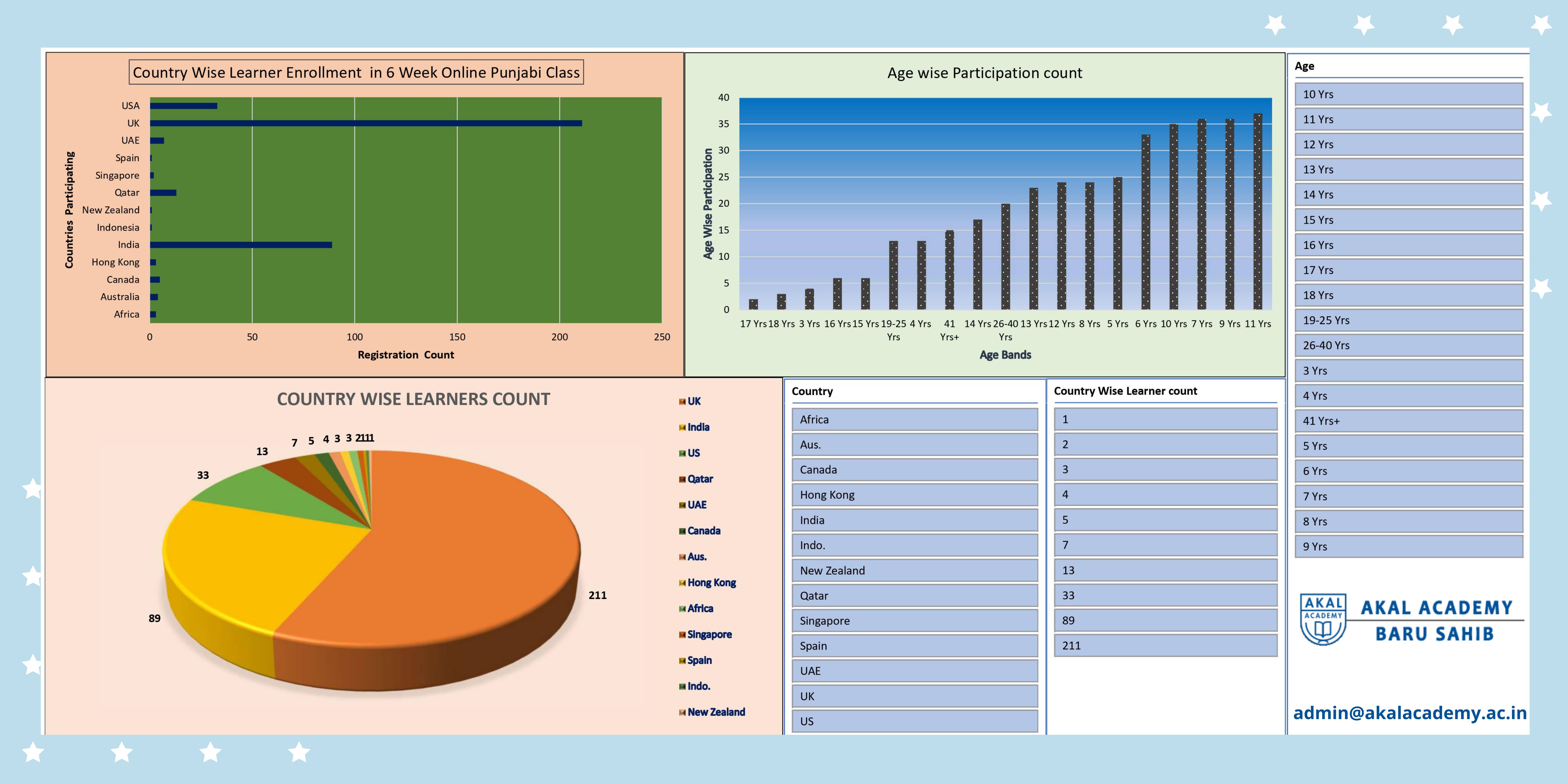 Glimpses of Online Punjabi Class. It was heart touching to see the eagerness of kids as well as their parents to Learn Maa Boli Punjabi. 150 Kids attended the 10 days Punjabi Class
Great opportunity to learn Punjabi online, across the globe, from the renowned academic institution Akal Academy, Baru Sahib.
Glimpses of Online Punjabi Class. It was heart touching to see the eagerness of kids as well as their parents to Learn Maa Boli Punjabi. 150 Kids attended the 10 days Punjabi Class
Great opportunity to learn Punjabi online, across the globe, from the renowned academic institution Akal Academy, Baru Sahib.
19th July to 27th August 2021.
The Kalgidhar Trust ( Baru Sahib ) is bringing to you 6 weeks of online Punjabi classes. This course is ideal for those looking to be more confident when reading, writing, and speaking Punjabi. Every class will be delivered by an Expert Tutor from Akal Academy Baru Sahib.
Akal Academy Baru Sahib under the aegis of The Kalgidhar Trust on 19th July 2021 introduced 6 weeks of online Punjabi classes. This course was ideal for those who were looking to be more confident when reading, writing, and speaking Punjabi. The course was attended by 350+ students from 13 countries across the globe.
It was heart touching to see the excitement of kids from all age groups as well as their parents to learn mW-bolI pMjwbI (Maa Boli Punjabi).
The Cambridge IGCSE programme helps students to acquire knowledge, understanding and skills in the subject they study through intellectual enquiry and intellectual enquiry. The Cambridge IGCSE programme has been designed for students worldwide, including those whose first language is not English.
With the Cambridge Pathway, your child is joining a global community of learners from more than 10 000 schools in over 160 countries. By developing a global outlook in Cambridge learners, we aim to equip them for success in the fast-changing modern world.
A Cambridge IGCSE qualification is recognised by leading universities around the world and employers view it as a valuable certificate of achievement. In the UK, Cambridge IGCSE is accepted as equivalent to the GCSE. A good grade (grade C or above) in Cambridge IGCSE English as a Second Language is accepted for entry by a number of universities in the UK as evidence of competence in the English language.
Many universities worldwide require a combination of Cambridge IGCSEs and Cambridge International A Levels to meet their entry requirements. Leading US and Canadian universities require Cambridge International AS& A Levels, but some US and Canadian colleges and universities will accept students with five Cambridge IGCSEs at grade C or above.
Cambridge assessments do not simply test recall of knowledge but also tests learners ability to draw on their understanding in order to analyse, evaluate and synthesise ideas. In this way, Cambridge programmes and qualifications are best taught using active learning approaches which are also more engaging for students. Encouraging active learning enables learners to attain higher grades, based on their enhanced understanding, and better prepares them for further education and as well as for the workplace.
Every year, nearly a million Cambridge learners from 10 000 schools in over 160 countries prepare for their future with an international education from Cambridge.
Cambridge has a 150-year history of providing international exams. It is a not-for-profit organisation and the only exam board wholly owned by aworld-leading university.
Every student admitted to the school pledges to observe willingly all the Rules and Regulations and to uphold and respect the principles on which the institute is founded. It is also to be understood that on breaking the pledge, the student forfeits his / her membership of the school. It is the duty of each student to perform all tasks assigned to him/her in connection with the functioning of the school to the best of his/her ability. All Sikh students are required to follow the Sikh spiritual and religious way of life being taught at the school. They have to keep their hair intact and are not allowed to cut hair from any part of their body.Any deviation from the Sikh religious principles, especially the cutting of hair, will lead to strict action and punishment which may lead to expulsion. The students are motivated to prepare themselves for partaking Amrit (through the Sikh way of baptism) at an appropriate age during their study period in the Akal Academy which would provide them better divine wisdom and value based education Any indiscipline on the part of a student may lead to his/her removal from the school rolls. The decision of the President of the Kalgidhar Trust / Society, in such cases, shall be final. Legal Disputes, if any, shall lie within the jurisdiction of the District where the Academy is located.
BULLYING IS STRICTLY PROHIBITED
Bullying has severe detrimental effects on those who are bullied. The effects can be immediate. They can also be long-term and can cause lifelong damage. In every bullying situation, there are typically three key parties: the victim, the bully or bullies, and those who stand by (by-standers), who are aware of the bullying. Each of these three parties is affected negatively by bullying. The responsibility of preventing any undesirable aspect of bullying and ragging rests jointly and also individually on all stakeholders, which includes the head of the institution teacher, non-teaching staff, students, parents and local community. Bullying is strictly prohibited inside the school premises and no such act will go unnoticed or unpunished. The methods of intervention are as important as methods of prevention. Following actions and penalties may be taken by the School Management as per observation and understanding the gravity of the misconduct: (i) Oral/written warning. (ii) Suspension from attending classes/school for a specified period. (iii)Withholding or cancelling the results. (iv) Imposition of fine upto a specified amount. (v) Expulsion/rustication from school in case of high severity of the misdemeanour. (vi) Transferring a student from one school to another school.
RAGGING IS PROHIBITED
Bullying has severe detrimental effects on those who are bullied. The effects can be immediate. They can also be long-term and can cause lifelong damage. In every bullying situation, there are typically three key parties: the victim, the bully or bullies, and those who stand by (by-standers), who are aware of the bullying. Each of these three parties is affected negatively by bullying. The responsibility of preventing any undesirable aspect of bullying and ragging rests jointly and also individually on all stakeholders, which includes the head of the institution teacher, non-teaching staff, students, parents and local community. Bullying is strictly prohibited inside the school premises and no such act will go unnoticed or unpunished. The methods of intervention are as important as methods of prevention. Following actions and penalties may be taken by the School Management as per observation and understanding the gravity of the misconduct: (i) Oral/written warning. (ii) Suspension from attending classes/school for a specified period. (iii)Withholding or cancelling the results. (iv) Imposition of fine upto a specified amount. (v) Expulsion/rustication from school in case of high severity of the misdemeanour. (vi) Transferring a student from one school to another school.

